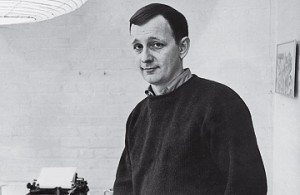Art is not difficult because it wishes to be difficult, but because it wishes to be art. However much the writers might long to be, in his work, simple, honest, and straightforward, these virtues are no longer available to him. He discovers that in being simple, honest, and straightforward nothing much happens: he speaks the speakable, whereas what we are looking for is the as-yet unspeakable, the as-yet unspoken.
Later…
Style is not much a matter of choice. One does not sit down to write and think: Is this poem going to be a Queen Anne poem, a Biedermeier poem, a Vienna Secession poem, or a Chinese Chippendale poem? Rather it is both a response to constraint and a seizing of opportunity. Very often a constraint is an opportunity. It would seem impossible to write Don Quixote once again, yet Borges has done so with great style, improving on the original (as he is not slow to tell us) while remaining faithful to it, faithful as a tick on a dog’s belly. I don’t mean that whim does not intrude. Why do I avoid, as much as possible, using the semicolon? Let me be plain: the semicolon is ugly, ugly as a tick on a dog’s belly. I pinch them out of my prose. The great German writer Arno Schmidt, punctuation-drunk, averages eleven to a page.
Style is of course how. And the degree to which how has become what—since, say, Flaubert—is a question that mean of conscience wax worth about, and should. If I say of my friend that on this issue his marbles are a little flat on one side, this doesn’t mean that I do not love my friend. He, on the other hand, considers that I am ridden by strange imperatives, and that the little piece I gave to the world last week, while nice enough in its own way, would have been vastly better had not my deplorable aesthetics cause me to score it for banjulele, cross between a banjo and a uke. Bless Babel.
Read the whole essay here.
—Jason DeYoung

D.G. thank you always for the wonderful pieces. NOT KNOWING is a serious piece fraught with humour, the workings of a quirky imagination, and language that not only surprises, it comforts. BB